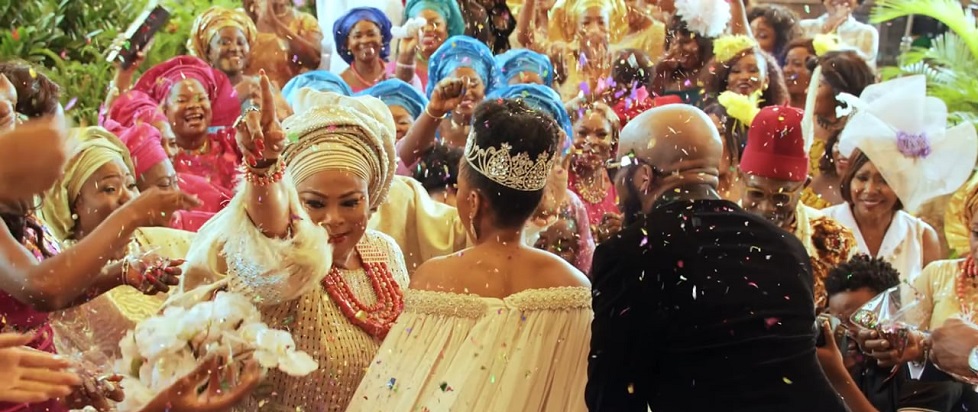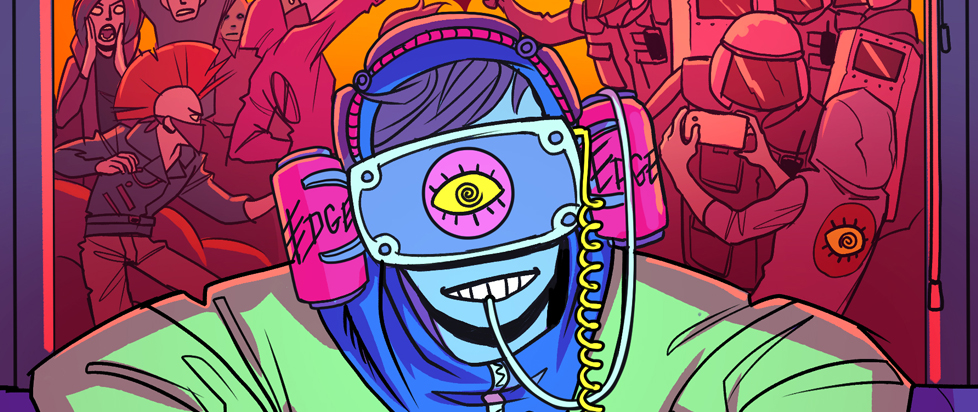
The New Age of Nollywood
This excerpt is from a feature story in Unwinnable Monthly #123. If you like what you see, grab the magazine for less than ten dollars, or subscribe and get all future magazines for half price.

I remember one afternoon, or evening. I was at my aunt’s house, sat around a TV with a bunch of (extended) family. It was Easter, or a birthday, or something like that. Playing on one of the TV channels wedged between re-runs of Catchphrase and the latest chart-toppers, was a horror film about someone using ‘juju magic’ to disrupt a marriage. So standard Nollywood stuff.
This movie had already been running for hours by this point, with multiple parts and repeated laughably bad ‘supernatural happenings.’ As it finally reached a climax, the typical Nollywood melodramatic music swelled and the husband opened a closet door to find a glowing and floating demonic head. Face painted white and blood dripping down from its fangs, everyone started screaming even louder than the actor on screen who was chewing scenery to an extreme. To this day I can’t tell whether my aunt and older cousins were screaming from fear of laughter, nor can I remember many other details of the day – but that image and that collective feeling are burned into my brain.
Up until recently, that’s what Nollywood has been. A multi-billion dollar industry where quantity superseded quality, full of poorly shot and overlong melodrama, with flashes of brilliance and a few incredible actors thinly spread. However, that is finally changing – a new generation of filmmakers are doing things differently.
 One of the key leaders of this new movement is Kemi Adetiba. In 2016 she wrote and directed the smash-hit romantic comedy about a lavish wedding – The Wedding Party. After this, she completely switched genres, writing and directing King of Boys – a gangster epic which very much feels in line with some of Scorsese’s work. It’s already rare to find a director who can make great work in two diametrically opposed genres, but what makes Adetiba’s work truly special is the way in which she firmly roots both of these films in Nigerian culture. In The Wedding Party Adetiba plays with cultural expectations of weddings and their grandeur, while in King of Boys she taps into the corruption endemic in Nigerian politics. Both utilize the Nigerian talent for shade in comedy and tense moments – understanding that our proverbs make incredible one (or two)-liners.
One of the key leaders of this new movement is Kemi Adetiba. In 2016 she wrote and directed the smash-hit romantic comedy about a lavish wedding – The Wedding Party. After this, she completely switched genres, writing and directing King of Boys – a gangster epic which very much feels in line with some of Scorsese’s work. It’s already rare to find a director who can make great work in two diametrically opposed genres, but what makes Adetiba’s work truly special is the way in which she firmly roots both of these films in Nigerian culture. In The Wedding Party Adetiba plays with cultural expectations of weddings and their grandeur, while in King of Boys she taps into the corruption endemic in Nigerian politics. Both utilize the Nigerian talent for shade in comedy and tense moments – understanding that our proverbs make incredible one (or two)-liners.
Another leading figure is Genieve Njani. A household name since the inception of Nollywood, she spearheaded Africa’s first Netflix-produced film – Lionheart. This is a slick and funny film that manages to make drama between coach companies both engaging and human. Lionheart was set to be Nigeria’s first ever submission to the Best International Feature Film at the Academy awards, but the Academy rejected it on the basis that the film was largely in English. Frustratingly, this rule means that Nigeria (and various other nations colonized by Britain) are disqualified from ever submitting films in the language most widely spoken in their countries. In other words, due to the Academy’s rules, countries are being punished for being colonized. In spite of all that, Lionheart is still another massive step forward for Nollywood – thrusting the industry into broader critical discussion.
———
Oluwatayo Adewole a writer and critic from London. You can find him on Twitter avoiding deadlines and complaining about writing bios @naijaprince21.
You’ve been reading an excerpt from Unwinnable Monthly Issue 123.
To read the article in its entirety, please purchase the issue from the shop or sign up for a subscription to Unwinnable Monthly!




